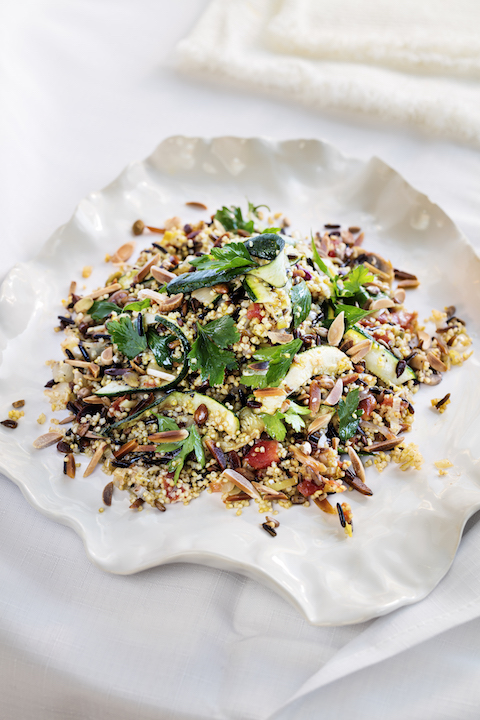Endometriosis is a chronic condition where cells similar to those that line the uterus grow in other parts of the body. The symptoms of endometriosis vary and may include pain, irregular bleeding, irritable bowel syndrome and fatigue but not all women will actually experience symptoms.
A treatment plan should focus on looking at ways to support hormone balance, gut health, liver detoxification, stress levels and addressing inflammation. Food and nutrition can play a role in each of these areas. However, not much attention is given to diet when it comes to the management of endometriosis, possibly because research in this area is presently lacking. As a Nutritionist, I have seen the improvements diet can make to the lives of women suffering from endometriosis and here are the specific foods to pay attention to.
Limit foods high in trans fatty acids
Foods high in trans fatty acids are known to increase levels of inflammatory markers in the body and therefore should be limited by anyone suffering endometriosis. Examples include:
- Processed foods, baked goods (crackers, biscuits), snack products (chips), deep fried food and pastries etc.
Boost anti-inflammatory and antioxidant rich foods in the diet
Anti-inflammatory and antioxidant rich foods are undoubtedly nature’s best defence against inflammation while also offering a good supply of vitamins and minerals for overall wellbeing. Some examples include:
Anti-inflammatory
- Turmeric, ginger, flaxseeds, hemp seeds, chia seeds, walnuts and fatty fish (salmon, sardines).
Antioxidant rich
- Apples, berries, tomato, cruciferous veggies (broccoli, cauliflower, red cabbage), capsicum, sweet potato, leafy greens, cocoa, citrus fruits, kiwi fruit and papaya.
Eat adequate healthy fats
Unlike trans fats, healthy fats including monounsaturated and polyunsaturated fats are supportive against inflammation, support a healthy mood and help to keep blood sugar levels stable. Some examples include:
- Avocado, macadamia nuts, extra virgin olive oil, hemp seeds, chia seeds and fatty fish.
Increase consumption of liver supportive foods
A well functioning liver is critical for healthy hormone balance. Foods traditionally believed to support liver detoxification include:
- Beetroot – try freshly grated in salads or roasted and added to salads
- Rosemary – use as a marinade or add to stews and casseroles
- Brassica vegetables (broccoli, cauliflower, cabbage, brussels sprouts)
- Bitter greens – rocket, endive and watercress – add to salads, soups or smoothies
- Lemon – try as a salad dressing or squeezed into water
Pay attention to eating adequate fibre, dietary prebiotics and probiotics for gut health
Paying attention to gut health is particularly important for those dealing with endometriosis. Being irregular can cause excess hormones to recirculate in the body. Therefore, making sure we are eating enough fibre for daily elimination will assist in balancing hormones. The balance of good versus bad bacteria in the gut also plays a role in inflammation. Some foods to support gut health include:
Probiotic rich foods
- Natural yoghurt, kefir, sauerkraut, kimichi, kombucha, tempeh
Prebiotic
- Oat bran, flaxseeds, leeks, onion, garlic and cannellini beans
Fibre
- Wholegrains (brown rice, quinoa), vegetables, legumes, peas, oat bran, chia seeds, hemp seeds, flax/linseeds, pears, apples and kiwi fruit.
Women with endometriosis may also experience the symptoms of irritable bowel syndrome and temporarily trialling a Low FODMAP diet under the guidance of a health care professional may help to relieve symptoms.
